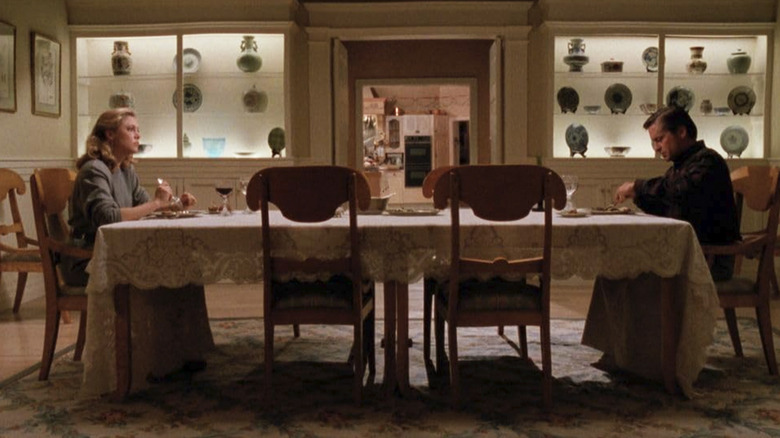“The Roses,” the brand new comedy from “Meet the Dad and mom” and “Austin Powers” director Jay Roach, is a little bit of a contradiction. On one hand, it is technically a reimagining of Warren Adler’s 1981 novel “The Battle of the Roses,” however I believe most individuals who know it is primarily based on one thing will confer with it as a remake of Danny DeVito’s 1989 movie adaptation of that novel. Reimagining current mental property is the defining technique of recent Hollywood, and with recognizable stars like Benedict Cumberbatch and Olivia Colman within the lead roles and a script from “Poor Issues” and “The Favorite” screenwriter Tony McNamara, it is smart that this new model would get made. However, it is also a divorce film aimed squarely at adults, and any studio movie courting that demographic — particularly a comedy, and particularly one that does not coddle its viewers — is, sadly, a uncommon factor in 2025, so a part of me is shocked this was made on this scale, as a theatrical launch.
/Movie caught up with Roach and McNamara forward of the movie’s launch (you can hear the total interview on the September 3 episode of our /Movie Weekly podcast), and the director defined what he thought separated his film from its predecessor, citing a couple of traditional films that really feel like progenitors of this one within the course of:
“You do hope [the two lead characters] get again collectively [in this version]. It is nearly such as you suppose it is perhaps a remarriage comedy, and a few of Tony’s dialogue is that type of quick banter that these type of movies like ‘The Philadelphia Story’ or ‘Adam’s Rib’ [had]. However you are additionally going for one thing that is as dramatic as ‘Who’s Afraid of Virginia Woolf?’ or one thing. The script did that. It made you concern for his or her relationship and understand, ‘Wow, this is perhaps doomed,’ however then, ‘Oh, maintain on, they care about one another they usually get one another, and the way’s that going to work out?’ And that type of suspense, I feel, is what distinguished it from the unique.”
The Battle of the Roses pulled no punches
Roach is true; I used to be rooting for Theo (Cumberbatch) and Ivy (Colman) to get again collectively at varied factors in “The Roses,” however I by no means had that feeling watching 1989’s “The Battle of the Roses,” which charts the dissolution of Oliver (Michael Douglas) and Barbara (Kathleen Turner) Rose’s marriage. Personally, I feel the most important distinction within the two films is the pace with which the couple turns in opposition to one another within the unique, and the ferocity with which they battle one another. The escalation begins far earlier within the unique movie, and at one level, Barbara will get in a car and principally monster vehicles her means excessive of a tiny sports activities automotive that has Oliver inside. At varied factors, it seems to be like they’re legitimately attempting to kill or grievously injure one another. “The Roses” is not as nasty; it is nearly playful as compared.
Douglas, together with his historical past taking part in the dishonest Dan Gallagher in “Deadly Attraction” and “Wall Road” slimeball Gordon Gekko, introduced an inherent untrustworthiness to his character, so I did not purchase that he ever wished to reunite with Barbara for the precise causes. With out the hope that its leads may work issues out, “The Battle of the Roses” turns into a a lot darker comedic train about how far these persons are keen to go to hold on to the issues they’ve gathered. And with out freely giving the endings of both movie, I will simply say that “The Battle of the Roses” conclusion hits a lot more durable than what occurs in “The Roses.” Each are good, however to me, it felt like the best way “The Battle of the Roses” embraced the darkness of its premise was a extra satisfying exploration of those concepts than the comparatively subdued antics of “The Roses.” Possibly that is why the previous made it onto our listing of one of the best break-up films ever made.
“The Roses” is in theaters now.

![What Separates The Roses From The Battle Of The Roses, In accordance To The Director [Exclusive] What Separates The Roses From The Battle Of The Roses, In accordance To The Director [Exclusive]](https://i3.wp.com/www.slashfilm.com/img/gallery/heres-what-separates-the-roses-from-the-war-of-the-roses-according-to-the-director-exclusive/l-intro-1756412453.jpg?w=696&resize=696,0&ssl=1)
